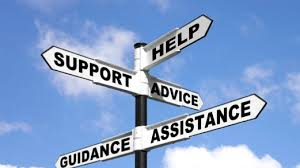NewDay Counseling
If you have a problem with alcohol or some other drug, call a NewDay counselor at 912.201.3605 * 401 Mall Blvd, Ste 101 D, Savannah, Ga * Free Phone Consultations
Relapse is not inevitable

Addiction has been called a disease of relapse, mainly because relapse is common. First, though, we need to distinguish between the up and down process of addiction, in which a person might struggle for awhile after deciding to stop drinking or using drugs. Someone addicted to alcohol, opiates or other drugs might go through many experiences of trying to stop but never getting into recovery. When a person decides to do something about the problem, they might stay straight for a short while then drink or use drugs, and this can go on for months. This is just the process of addiction — recovery hasn’t happened yet. There is no recovery, so there is no relapse, just many attempts to deal with the problem. All the attempts can move someone closer and closer to recovery, but they can’t be considered to have recovered then relapsed during all these attempts.
Relapse is when a person has some significant time in recovery and has moved past the irrational compulsion to drink or use drugs, then starts drinking and using drugs again. It’s actually more complicated than that. If a person has been in recovery, utilizing support resources and relapse prevention tools, and has changed his/her thinking and behavior regarding alcohol and other drug use, then the person begins drifting away from the support and stops using the relapse prevention tools, it can be said that the person has relapsed in their mind before taking the first drink or using the first drug again.
It’s the mindset and behavioral changes that constitute the relapse — the actual return to active addiction is merely the end consequence of the mental, emotional and behavioral relapse. It’s like someone who’s lost 60 pounds and has a bright outlook on life and feels healthy again — then the person stops doing the things they did to lose weight and feel good about themselves — then they go on an eating binge, all after a long time of feeling good and keeping the weight off. This process can be called a relapse.
Relapse is not inevitable. Recovery management is about understanding that relapse is possible, thus, managing recovery for the long term. If a person in recovery has no plan for the times when it gets hard to continue in recovery, or has no plan to deal with the down times in life, then the person will put themselves at risk for relapse. If, however, a person in recovery has plans for those tough times, then, when they get to a cross roads in recovery, they’re more likely to know what steps to take to protect their recovery. There are many people in recovery who don’t relapse once they recover from what AA calls the “seemingly hopeless state of mind and body” that is addiction. Relapse is not inevitable.
 Notification- TRANSACTION 1,478011 BTC. Get =>> https://graph.org/Message--120154-03-25?hs=992f762c66bb1f5666acf417547d7a0c&
Notification- TRANSACTION 1,478011 BTC. Get =>> https://graph.org/Message--120154-03-25?hs=992f762c66bb1f5666acf417547d7a0c&
Pingback: Relapse - NewDay Counseling - Addiction Treatment